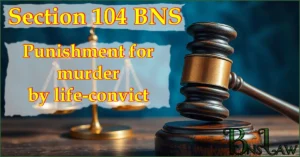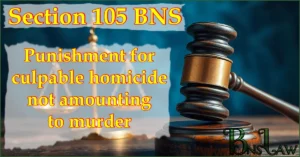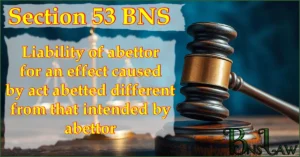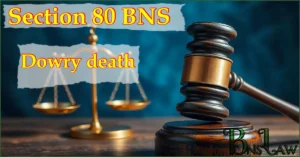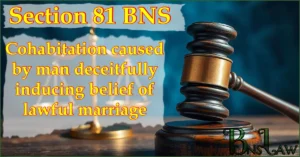Section 266 BNS | BNS 266
Whoever, having accepted any conditional remission of punishment, knowingly violates any condition on which such remission was granted, shall be punished with the punishment to which he was originally sentenced, if he has already suffered no part of that punishment, and if he has suffered any part of that punishment, then with so much of that punishment as he has not already suffered.
READ OTHER SECTIONS OF CHAPTER XIV — OF FALSE EVIDENCE AND OFFENCES AGAINST PUBLIC JUSTICE
FAQs of BNS Section 266
-
266 BNS punishment and fine
Punishment and fine under Section 266 of the BNS: Punishment of original sentence, or if part of the punishment has been undergone, the residue.
-
266 BNS cognizable or not
The offence under Section 266 of the BNS is cognizable.
-
266 BNS bailable or not
The offence under Section 266 of the BNS is non-bailable.
-
266 BNS trial court
The Court by which the original offence was triable.
Important Points
- Cognizable Offences: These are offences where a police officer can arrest a person without a warrant.
- Non-Cognizable Offences: These are offences where a police officer cannot arrest a person without a warrant.
- Bailable Offences: These are offences where the accused can get bail from the police station itself. All bailable offences are listed in the First Schedule of the Bharatiya Nagarik Suraksha Sanhita (BNSS).
- Non-Bailable Offences: Offences in which bail is not granted directly from the police station but after hearing the case in the court, the judge decides when bail will be granted. All non-bailable offences are listed in the first schedule of the Bharatiya Nagarik Suraksha Sanhita (BNSS).
- In the above FAQ, “trial court” means the court that has jurisdiction to try the offence.
- In the above FAQ, the expression “Magistrate of the first class” and “Any Magistrate” does not include Executive Magistrates.
Read other Sections of the BNS
Reference Link: New Criminal Laws (BNS), Ministry of Home Affairs


